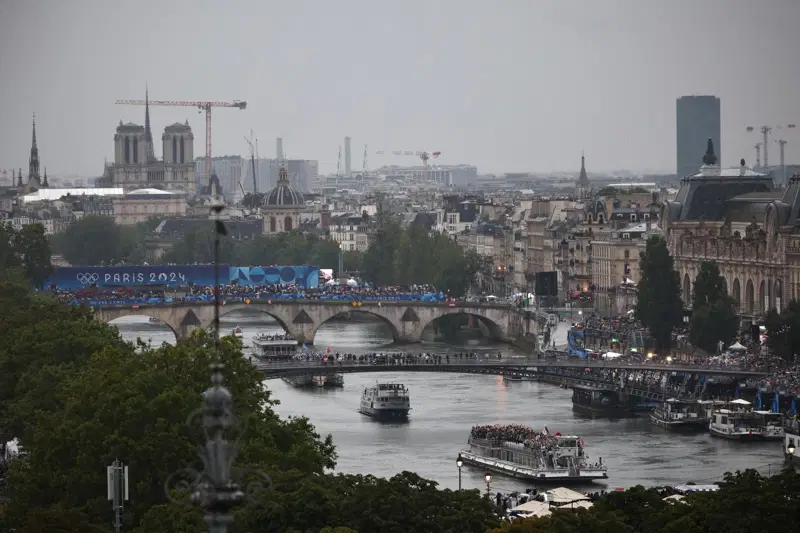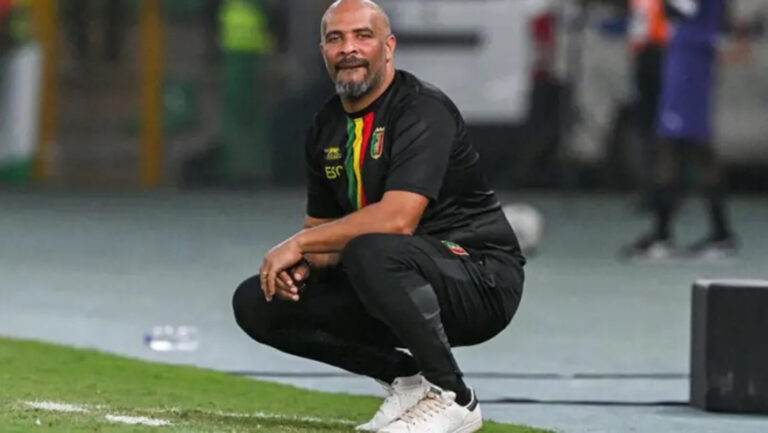
French bishops complained on Saturday about the “scenes of derision and mockery of Christianity” during the opening ceremony of the Paris Olympic Games which has upset some conservatives and has drawn mixed reviews.
The opening had offered “wonderful moments of beauty, joy, rich emotions, and was universally praised,” a statement from the French Bishops’ Conference said.
“However, this ceremony unfortunately included scenes of derision and mockery of Christianity, which we deeply regret,” the bishops said.
While they did not refer to specific scenes, the ceremony featured a segment entitled “Festivity” which began with a group sat at a table, including several drag queens, which was reminiscent of the Last Supper, the final meal Jesus is said to have taken with his apostles.
It was set to music by lesbian activist DJ Barbara Butch.
“We think of all Christians across the continents who were hurt by the excesses and provocation of certain scenes. We hope they understand that the Olympic celebration extends far beyond the ideological biases of a few artists,” added the bishops.
The statement was co-signed by the “Holy Games”, a sports programme funded by the Catholic church.
Some conservative and far-right politicians in France have also expressed outrage over what they criticised as a “woke” parade, which featured LGBT+ performers and a racially diverse cast.
The four-hour ceremony took place under driving rain, with athletes sailing down a six-kilometre (four-mile) stretch of the river Seine on 85 boats.
Entertainers performed from river-side monuments, the banks and on bridges.
“To all Christians worldwide who watched the opening ceremony and felt insulted by this drag queen parody of the Last Supper, know that it is not France speaking, but a leftist minority prepared for any provocation,” far-right politician Marion Marechal wrote on X.
A spokesman for France’s far-right National Rally party, Julien Odoul called the ceremony “a ransacking of French culture.”
Arch-conservative Hungarian Prime Minister Viktor Orban meanwhile railed against the “weakness and disintegration of the Western world” which he said was illustrated by the opening ceremony.
“Western values were considered for a long-time as universal but are seen as increasingly unacceptable and rejected by many countries in the world,” Orban said in Romania.
Show artistic director Thomas Jolly, who is gay, had pledged last week that the ceremony would celebrate “diversity” and “otherness.”
Speaking at a press conference on Saturday, he said that his intention had not “been to be subversive or to shock.”
“Last night it was about our Republican values of benevolence and inclusion,” he told reporters.
“In France, you have the right to love as you like, who you like. In France, you can believe (in religion) or not believe. In France, we have lots of rights,” he added.
-Bloated? –
Reviews of the parade have been mixed.
The quirky and high-kitsch parade which also featured ballet, opera and hard-rock has been broadly hailed in the French media.
Sports newspaper l’Equipe said it had “left memories for a century.”
But writing in Britain’s The Guardian newspaper, reviewer Arifa Akbar said there were some “thoroughly weird curatorial decisions.”
“Paris is known for its taste but this looked like a motley outfit thrown together,” she said.
Critic Mike Hale writing in The New York Times said the ceremony felt “bloated” and “worked to diminish the athletes”.
Overall it was “quintessentially French: titillating, hermetic, light on humor and heavy on pretense,” he wrote.
Around 100,000 spectators watched from stands on the river banks, often at a cost of hundreds, sometimes thousands, of euros.
Although many were thrilled and upbeat despite the rain, others complained that they were left to watch screens and passing boats for most of the time, with the singers and dancers stretched out all along the route.
Around 200,000 people received free tickets to stand at locations along the banks, often with poor visibility, and many headed home early.
Paris organisers and the Internatinal Olympic Committee (IOC) were fulsome in their praise for Jolly’s work at a press conference on Saturday.
“Every edition (of the Olympics) brings a stone to the edifice,” Christophe Dubi, Olympic Games executive director at the IOC, said. “This has brought a mountain, it’s not a small stone.”
Chief Paris Games organiser Tony Estanguet hailed the ceremony as “a unique moment” and he stressed the successful work of French security forces.
Around 45,000 police officers, 10,000 soldiers and 22,000 private security guards were on duty.
“There were no security incidents,” he said.
Vanguard


